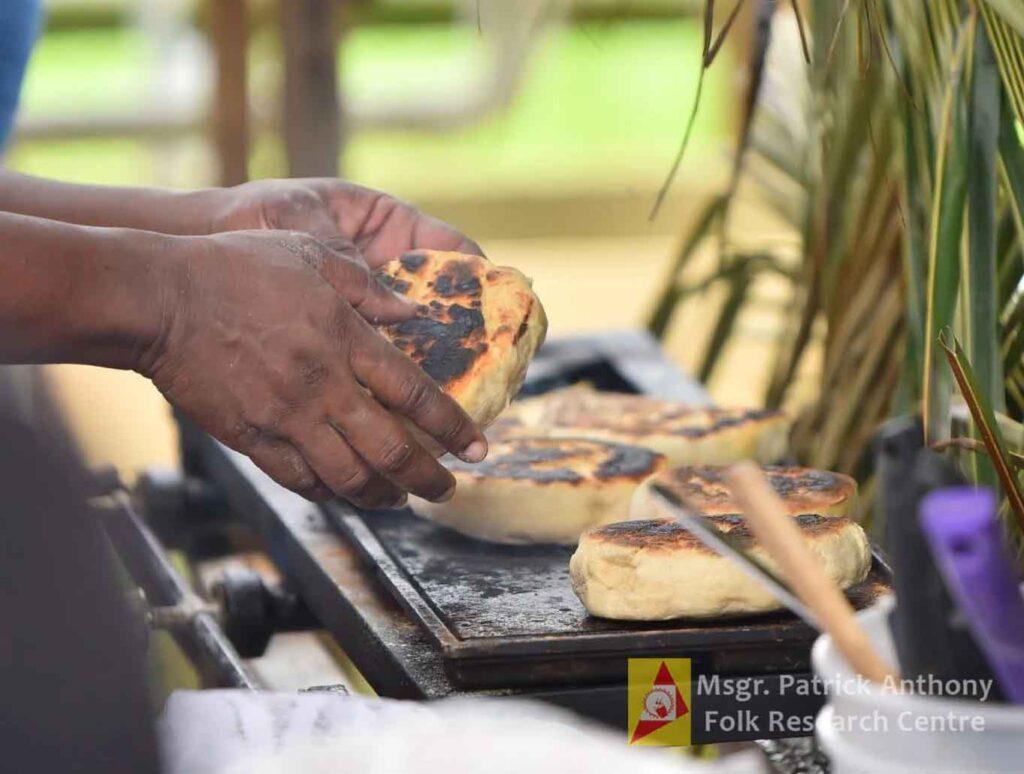TRADITIONAL FOODS
PREPARATION
The preparation of Creole foods and beverages begins as early as 4:40 in the morning of Jounen Kwéyòl to cater for persons looking to enjoy a good Creole breakfast. Beverages such as coca tea, cinnamon and others are usually available along with fried bakes, roast bakes, floats, local bread with saltfish, smoke herring, cucumbers, souse and fried fish. For persons who prefer heavy breakfast, meals such as green figs and salt fish, breadfruit and salt fish or smoke herring are also prepared in the early morning.

Roast Bakes

Rhyesa Joseph, Hon. Dr. Ernest Hilaire, Hon. Philip J. Pierre, H.E. Douglas Shen
(Left to Right)
The majority of the creole foods prepared for the day are consumed from lunch time onwards which includes brunch and supper. However, the pattern of consumption of food has changed over the years. Whereas sustenance comprised the consumption of three meals compromising breakfast in the morning from 7:00 to 9:00 o’clock, lunch from 12:00 noon to 2:00 o’clock and supper from 7:00 to 9:00 o’clock, people consume food at any time during the day and night; consequently, it is not unusual to see the preparation of heavy meals early in the morning and late at nights. This phenomenon is not specific to Jounen Kwéyòl but all events where food is being sold.
There are unique methods of preparation of creole foods on Jounen Kwéyòl. The earthen pot (Kanawi) and the steel pot (chòdyè) are the preferred utensils used for cooking as these were used by our ancestors. Most of the foods are cooked on-site with the use of the “three stones” (Fouyé difé) using wood as fuel or coals in a coal pot. The slow cooking of some of the traditional Creole foods such as bouillon or calaloo has superior taste to that cooked on a gas or electric stoves. Notwithstanding the superior taste of the foods being prepared on-site in the methods outlined, the health authorities insist that for the purpose of food safety, foods that are being prepared for the consumption of the public must be cooked on-site or have warmers for those prepared elsewhere.

Bouyon in Calabash
Cited from Creole Heritage Month & Jounen Kwéyòl: A Publication of the Folk Research Centre 2015